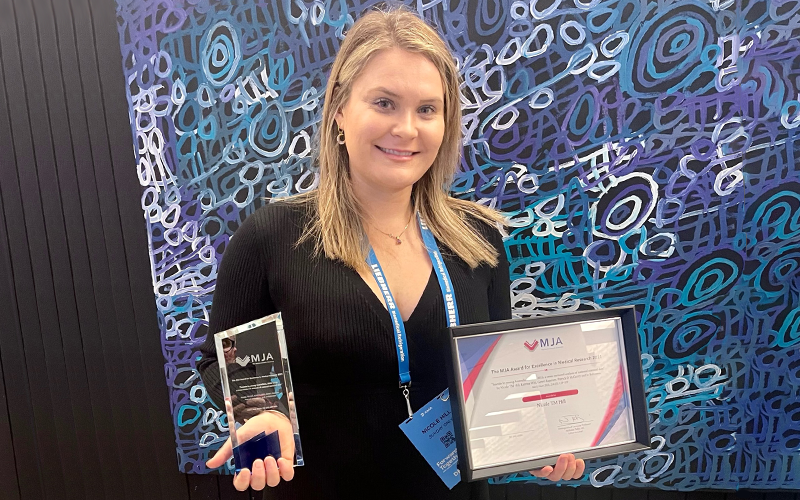
The Kids Research Institute Australia researcher, Dr Nicole Hill, and a team of co-researchers from Orygen have received the 2021 Medical Journal of Australia (MJA) award for Excellence in Medical Research for a paper on youth suicide.
The award honours the author/s of the best original clinical research article published in MJA in each calendar year. The study, Suicide by young Australians, 2006–2015: a cross‐sectional analysis of national coronial data, found that mental ill-health was a major contributor to Australian youth suicide.
The study revealed that the majority of young Australians who died by suicide between 2006 and 2015 had either a diagnosed or a likely mental health disorder, yet more than two-thirds were not in contact with mental health services at the time of their deaths. The study involved a close examination of coronial data to determine the circumstances leading up to individual suicides.
Dr Hill, who was the lead author, said the study was the first large-scale investigation into common drivers of suicide that can be used to inform decisions in suicide prevention with better precision.
“This study is important because it gives a voice to those young Australian’s who have died by suicide so that we can learn from their experiences to drive necessary policy and suicide prevention service reform,” Dr Hill said.
A key finding was that 1 in 2 young people who died by suicide had a known mental-health problem and had sought help, but the other half did not.
“These finding highlights that we need to look beyond mental health interventions for youth suicide prevention to include other approaches such as peer support and alternatives to emergency department models of care.”
Executive Director of The Kids Research Institute Australia, Professor Jonathan Carapetis, said the award acknowledges the seriousness of the issue of suicide and self-harm among young people in Australia.
“Despite significant investments over the years, the number of youth suicides have not substantially decreased,” Professor Carapetis said. “Research like this shows why it’s important to continue to invest in suicide prevention, and to keep looking for new and innovative approaches to tackle the problem.”
